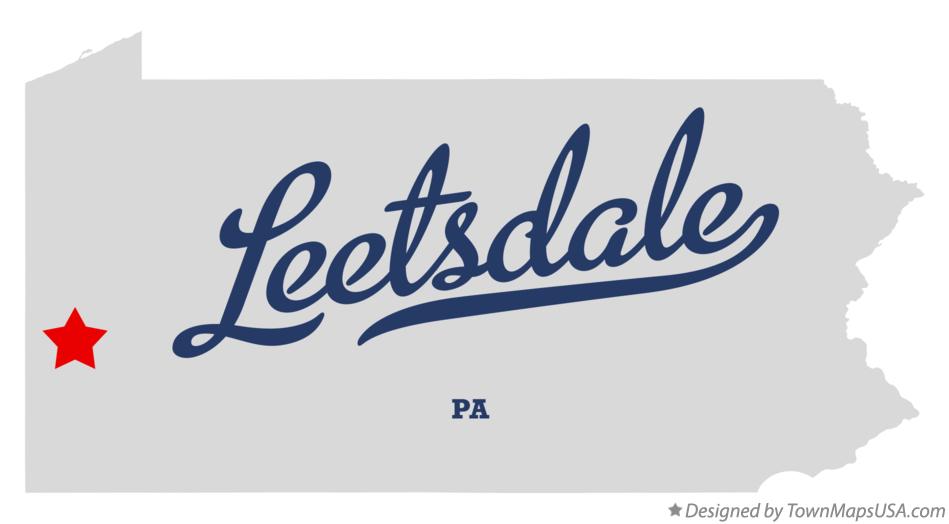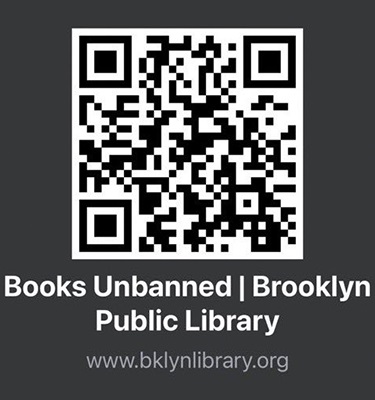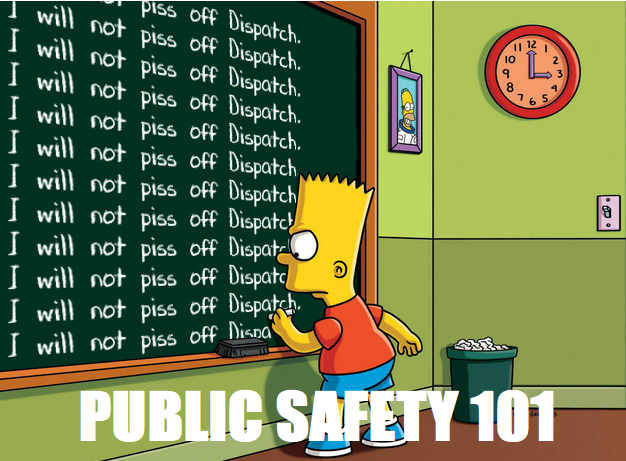The next steps in the regulatory dance that is the proposed Quaker Valley High School belong to the 3-person Leet Township Zoning Hearing Board.
When the Sewickley Herald reports on an upcoming government meeting a full two weeks ahead of that meeting, it’s something worth noting. The affair this Wednesday, which will also be streamed online via Zoom, could deliver high emotion on both sides of the issue, along with voluminous legalese to rival any TV courtroom drama.
I have reported on some of the more high-profile activities of the Leet Zoning Board in the past. According to the township website –
Requests for a Zoning Hearing must be made in writing and submitted with the Zoning Hearing Application, it’s requirements, and a non-refundable fee of $500.00 and the cost of advertisement and notices. The applicant is also responsible to pay for half of the stenographer.
To be fair, most of this appears to be standard practice in some municipalities, such as Sewickley. This can still be no guarantee that one can get a hearing, however – witness the treehouse controversy of 2015, when the Truchan family had to negotiate with the solicitor for the Zoning Board when they couldn’t bother (or tried to avoid) to muster a quorum.
The following year, Edgeworth billionaire Thomas Tull approached the township about developing the vacant land he had purchased along with the Walker estate “Muottas” the previous year into a “gentleman’s farm”.
After a well-attended and contentious Zoning Board hearing in mid-July 2016, Mr. Tull’s representatives withdrew their proposal for the farm two weeks later. Mr. Tull then purchased an existing working farm in Washington County, abandoned the new house he was having built after moving “Muottas” to a new location on the property, and sold the whole shebang to the school district about four years ago.
Arguably the catalyst of the most significant local issue in recent memory, Mr. Tull has most recently drawn the attention of landowners in eastern Idaho over real estate transactions there, according to reporting by The Wall Street Journal.
Process and Precedent
It’s important to understand exactly what the Zoning Board is considering, and how that affects both the debate and decision making at this point in the process.
The land owned by QVSD is zoned for residential development. To build a school on it first requires a special exception, defined as “a use of property that is allowed under a zoning ordinance under specified conditions”. A more detailed, state-specific explanation is available in a publication from the Pa. Department of Community and Economic Development.
The section of Leet Township’s zoning ordinance that deals with special exceptions lays out the process that has been undertaken up to this point. It’s interesting to note that this section of the ordinance, enacted in 2019, establishes lots of conditions for things that might generate a greater degree of controversy, such as communications towers, mobile home parks, and oil and gas development.
There’s nothing in there about a school, however – even though the ordinance was enacted a full year after QVSD closed on the Tull property.
The differences between what constitutes “use” of the land as a school versus actual “development” of the land to create the campus appears to be at the heart of this particular disagreement, if the documents filed by attorneys for both sides are any indication.
While the arguments on both sides are lengthy (and available at the links provided), a sampling of their respective arguments appears to illustrate this fairly well –
After filing the appropriate application and supporting documentation along with the required traffic impact study, and going through several hearings, attorneys for the school district filed a post-hearing brief that spells out what they believe the zoning board’s obligations are, based on legal analysis and precedent.
They also make reference to the testimony of those opposed to the project, arguing that their concerns relate more to the development phase of the project than the use of the land for a high school –
As the Zoning Ordinance expressly permits a school as a Special Exception (See: 27-301 1.A. Special Exception) in the AAA Residence District, Quaker Valley High School is a permitted use and presumptively does not adversely impact the health, welfare and safety of the community.
Objectors may challenge that presumption, however, objectors have an extremely difficult burden which was not met in this case. Objectors must raise an objection based on an adverse impact that results in a high degree of probability that the use will present a substantial detriment greater than what is normally expected.
The objectors did not raise any adverse impact related to the use of the property by students for educational purposes. Objectors raised impacts related to development, not use.
They also cited precedent to assert that “the expected consequences of a special exception use cannot be the basis of rejecting that use“, and that “the special exception must be granted“.
The district’s attorneys appear to be so comfortable in the certainty of their argument that they also submitted draft approval language for the zoning board to consider.
Prudence and Practicality
For their part, those objecting to the project cited familiar issues related to site size and stability, impact on adjacent landowners, and the potential effect on Camp Meeting Road. They too cited the section of Leet’s zoning ordinance that deals with special exceptions –
The special exception shall not involve any element or cause any element or condition that may be dangerous, injurious or noxious to any other property or persons.
They also took exception to the school district’s assertions about the seeming inevitability of approval –
Counsel for QVSD misleadingly argues that the failure of Leet to specifically identify a school among the types of special exceptions to be considered means that the usage must be permitted so long as the proposed school is no more onerous than any other ‘school’…
This argument is as inaccurate as it is glib. It disempowers the Zoning Hearing Board’s important community function. The Ordinance also fails to identify specific requirements for a nuclear waste disposal site on the land. Does Counsel think therefore, that the Township must grant that usage, so long as it is no more onerous than any other nuclear
waste disposal site?

Landslide across Route 65 and railroad tracks, Dixmont Stretch, Kilbuck Township, September 20, 2006. Click to enlarge – Pittsburgh Tribune-Review
This post-hearing and other supporting briefs also included references by at least one local resident to the presence of Pittsburgh red beds around the sandstone cap atop the proposed construction site. According to the Pittsburgh Geological Society –
Earthflows are very common in the Pittsburgh area, occurring most often in soils developed on slopes or old landslide deposits, especially on slopes underlain by the Pittsburgh red beds. Because of the unstable nature of these claystones, earthflows can occur anywhere these rocks form the soil or bedrock on sloping terrain.
The most infamous local example of these earthflows is the 2006 landslide at the site of the former Dixmont State Hospital in Kilbuck Township, which was in the process of being developed into a shopping center anchored by a Walmart.
This incident is typically referenced whenever there is discussion regarding hillside development in our region. Local residents and activists appear to be once bitten, twice shy.

Graphic from brief submitted by Janet Innamorato illustrating reported band of Pittsburgh red bed beneath QVSD property. Click to enlarge.
This includes Leetsdale resident and attorney Thomas Michael, his wife Linda (both former council members), and two of their neighbors along the top of Oak Drive, which abuts the school district property. Mr. Michael, whose house sits at the bottom of a 120- foot steep slope below the proposed high school site, filed a memorandum with the zoning board concurring with the objectors’ briefs.
Mr. Michael, whose term on Leetsdale council ended last month, was present at the October regular meeting when several residents of the same neighborhood expressed concerns about the project. Council also voted to accept the cooperation agreement with QVSD at this meeting, with Mr. Michael abstaining.
Leetsdale solicitor Megan Turnbull is also quoted in the minutes as stating “the Leet Township Zoning Board has options; approve with no provisions, deny the proposed plans or approve them with provisions“.

Graphic illustrating location of Oak Drive neighborhood in Leetsdale relative to proposed high school site, and associated topography. Click to enlarge – Allegheny County GIS
Contacted on February 5, Mr. Michael cited concerns regarding what he considers the obvious risks of earth movement, excavation, and blasting in a known location of Pittsburgh red bed, a stated uncertainty regarding the effects of this activity on groundwater movement, and his general feeling that the school district “is trying to get 10 pounds into a 5 pound bag“.
Another aspect that I noticed is the presence of steep slopes potentially affected by the construction activity. Having reported on the potential impacts and regulatory structures in other municipalities, I inquired of Mr. Michael if he was familiar with any similar efforts made in Leetsdale. He stated that he served as solicitor to Leetsdale’s zoning board for several years, and that there was a provision in the borough’s zoning ordinance that addresses this type of terrain – and indeed there is.
The ordinance establishes additional processes and requirements for any slope “more than 15 feet vertical over a distance of 100 feet horizontal” – AKA a 15 percent slope. Using the graphic above, an unofficial measurement shows that 120-foot slope between the Oak Drive homes and the plateau where the new high school is to be constructed covers a distance of approximately 700 feet. This would constitute a slope of 17.1 percent.
One complication with this is that the bulk of this slope is within Leet Township, whose zoning ordinance contains no apparent reference to steep slope management at all.
The objectors also present concerns about the current condition of Camp Meeting Road – aside from the intersection with Beaver Street (which QVSD has agreed with Leetsdale to improve), there are documented issues with degree of slope, deteriorating roadway and guide rail conditions, overhead lighting, and extreme curves.
Nowhere Near the End of the Road
Both sides present credible arguments toward achieving their desired ends. The district’s approach may be successful in that they present a legal argument that purports to establish limitations on the Zoning Board’s ability to consider objections to the “use” of the property as a school.
A brief filed by an attorney in support of the district’s position added the following –
Part 6 (Special Exceptions and Conditional Uses), Section 2, Subparagraph F of the Ordinance makes clear that issues related to land development are subject to scrutiny under a different ordinance (the Leet Township Subdivision and Land Development Ordinance) and by a separate body (the Leet Township Planning Commission) following approval of a application for use of a site by special exception.
In this manner, the Ordinance identifies certain limits on the
issues to be weighed by the Zoning Hearing Board in this context. Consideration of land development and construction issues by the Zoning Hearing Board when assessing a proposed use by special exception would, therefore, (i) violate the scope of its decision-making authority, as established in the Ordinance, and (ii) infringe upon the authority of the Leet Township Planning Commission, as defined by the Ordinance.
Those objecting contend that irrespective of the legal arguments presented, their concerns resonate to the responsibilities of the Zoning Board regarding potential harm to life and/or property by any proposed use, citing language in the ordinance that states, in part-
The Board may make such other and additional conditions and safeguards as they deem necessary to protect the best interests of the surrounding property or neighborhood. (Section 27-601, A, (13))
They added a footnote to this for emphasis –
The District asserts in its Pre-Hearing Brief that none of these criteria apply here because “a special exception school use has been designated as a permitted use.” See District’s Pre-Hearing Brief at 2. This tortured reading of the Ordinance is simply incorrect and has no basis whatsoever in law.
The Ordinance and case law are clear that a special exception applicant must demonstrate compliance with the specific requirements set forth in the applicable ordinance.
Whew….
So in essence we are faced with the following point and counterpoint –
FOR: Legal arguments and precedent say that the Zoning Board must approve the special exception. That other stuff doesn’t matter right now.
AGAINST: Not only does the other stuff matter, but the Zoning Board must consider potential hazards to adjacent properties or the public in order to do their job.
Regardless of what action the Leet Zoning Board takes this week or next, these arguments will find another home before the township Planning Commission. Considering that the school district’s contention is that the objectors’ arguments actually belong before the Planning Commission, it will be interesting to see what their game plan is next.
Leet Commissioners Complete Slate, Issue Statement, Await High School Fate
The Leet Township Commissioners appointed former commissioner John Stephansky of Fair Oaks to fill the vacancy created by the resignation of Erica Oslick. Mr. Stephansky was defeated in the May 2021 primary election by 3 other Democrats, including Donna Adipietro. Ms. Adipietro, who lost her re-election bid in a tight race in November, had also submitted a letter of interest for the empty seat.
The new commissioners issued a statement last week as part of the township newsletter. Included in this message was a commitment to keep police services in house, bolster support of the Fair Oaks VFD, maintain a commitment to fiscal responsibility, adopt a code of ethical conduct, uphold the rule of law, and “above all…perform our duties honestly and make decisions in the best interests of the majority of our residents and not with our own self interest in mind or any particular person or group“.
With the addition of Mr. Stephansky, the makeup of the Commission is now 4:1 for District 2, AKA the “on the hill” district. Since at least one commissioner, Dan Peluso, made “balanced representation” and advocating “on behalf of all of my fellow Leet Township residents” part of his campaign, I inquired of him in a recent email exchange after he commented on my post last month –
…would you be in favor of exploring the township’s options under the First Class Township Code to create wards within the township, and electing most and/or all commissioners by ward instead of at large?
I also inquired about the selection process for Mr. Stephansky’s seat, and the board’s role in the upcoming decision by the Zoning Board, if any.
I’m awaiting his reply.
Dundee Farm Dispute Decided (At Last) With a Historical Twist
It’s nice to see some disputes come to a close, at least for now. While making routine checks on things I have been following, I came across the December 1 order of the Pa. Supreme Court denying the appeal of Scott and Teresa Fetterolf in a dispute ongoing since 2017 regarding the types of activities they conducted at their farm in Sewickley Heights. My previous posts on the dispute are available here.
I reached out last month to Sewickley Heights Borough Manager Nathan Briggs, who replied wth the following –
Borough Council and the Mayor are pleased to report that the challenge to the Borough’s Zoning Ordinance has been resolved with a final and binding court decision in favor of the Borough.
The Fetterolfs’ request for appeal before the PA Supreme Court was denied and the final ruling of the Commonwealth Court stands: (1) the use of property as an event venue is not permitted, and (2) classes require a conditional use permit.

As it happens, a Herald report from mid-December shed additional light on the manner in which the residents of the Heights, outside of government, have endeavored to preserve the residential character of the municipality.
The story about the preservation of the W.P. Snyder III estate ‘Wilpen Hall’ made reference to a 2013 legal dispute involving some of Mr. Snyder’s family and Mayor John C. Oliver III (acting as a private citizen and landowner) against Mr. Snyder and the Pittsburgh History and Landmarks Foundation over the proposed use of a portion of the estate for commercial purposes, i.e. a museum and event venue.
The complaint filed in Allegheny County Common Pleas Court included details regarding the existence of the Sewickley Heights Land Compact, described in the complaint as –
The Snyder lawsuit, which alleged violation of this compact, was settled in 2016 after the death of William P. Snyder III in 2015. The details of any settlement are not included in the online court record.
This brought up an interesting question – the original signers of the Land Compact specified that the covenants established “shall be binding upon ourselves, and upon our respective heirs, administrators, successors, and assigns“. Had the Fetterolfs prevailed in their dispute with the Borough, could private landowners have pursued a civil action alleging breach of the provisions of the Land Compact?
I’ve passed along that question, and will post an update with an answer.
The Land Compact is also referenced as part of the Borough’s Vision Plan, developed in 2010 in cooperation with the Allegheny Land Trust. Per this document, the Borough also adopted their 5-acre minimum lot size requirement in conjunction with the creation of the Land Compact.
A timeline included within the Vision Plan document also provided a historical tidbit that seems appropriate to mention here –
1960’s – Quaker Valley School District decides that it must have a part of the Lewis A. Park estate between Fern Hollow and Barberry Roads for a new “more centrally located” high school. The chosen site was in the heart of the former Spanish lands whose wildness was worth saving. Yet it was impolitic to impede progress (emphasis mine).
The solution was that an 82–acre parcel of land on Camp Meeting Road, with rather better access, was given to the school district by a Snyder Family Charitable Trust. The high school was never built there either, but the land serves to this day as athletic fields. The Park property, popularly known as “Tortilla Flats”, was purchased by concerned citizens and donated to Sewickley Heights Borough to become, by ordinance, Sewickley Heights Borough Park.
On that note, looking forward to the future with anticipation.
Have a good month ahead.




































Pingback: Post-Election, Pre-Holiday Observations and Other Things | John Linko
Pingback: Summer Shorts: School Board Double Down, Jasper’s Jabber and Jaunt | John Linko
Pingback: Summer Shorts: Walmart Taketh Away…and Giveth? | John Linko
Pingback: 2023 Campaigns and Beyond – Quaker Valley School Board | John Linko